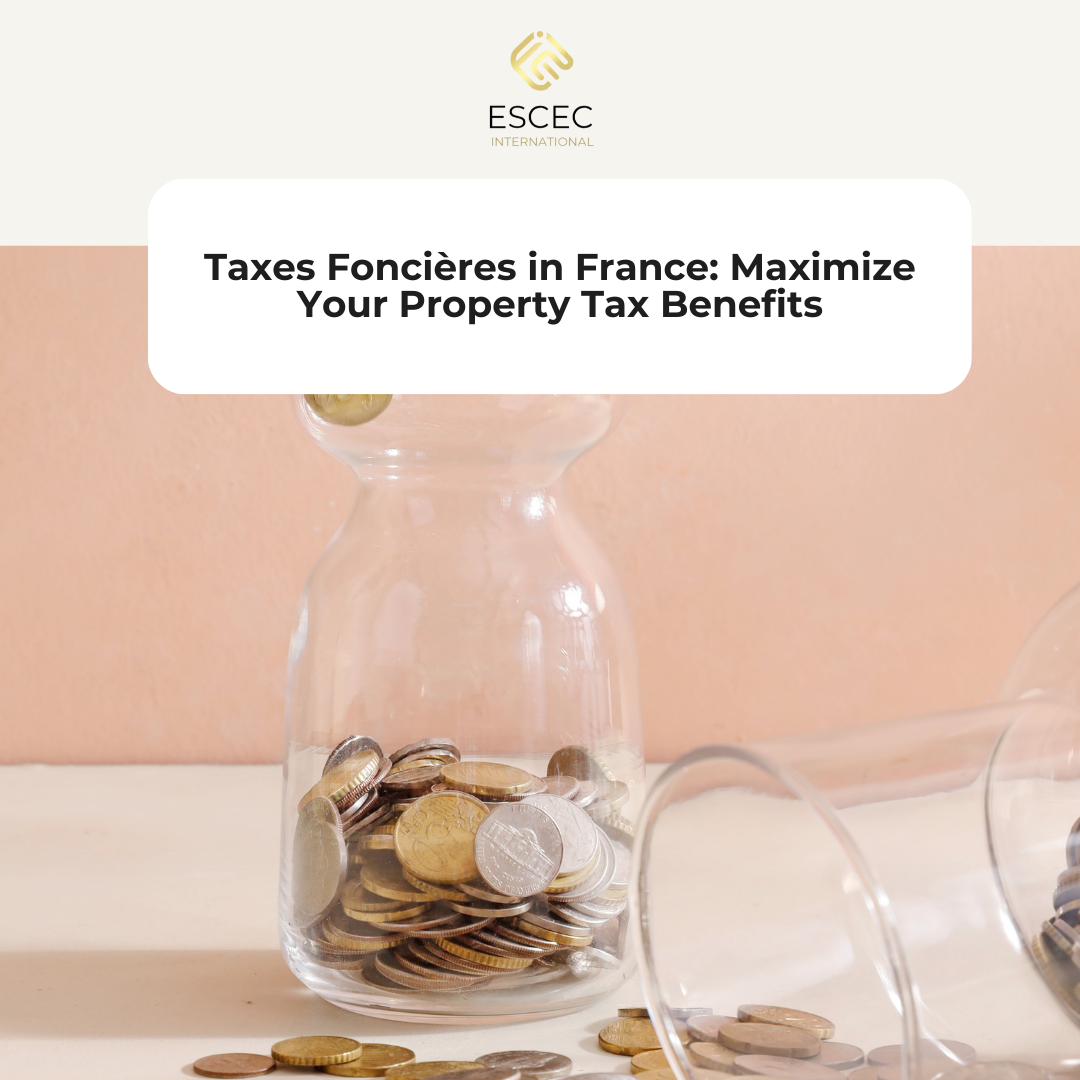Taxes Foncières in France: Maximize Your Property Tax Benefits
La taxe foncière is one of the main local taxes paid each year by property owners in France. It includes:
-
Taxe Foncière sur les Propriétés Bâties (TFPB) → houses, apartments, commercial buildings
-
Taxe Foncière sur les Propriétés Non Bâties (TFPNB) → land, agricultural plots, undeveloped property
The tax is owed by anyone who owns the property on January 1st, even if the property is rented out or unoccupied.
Taxes foncières represent a critical source of revenue for communes, départements, and intercommunalities, financing essential public services such as roads, local infrastructure, waste collection, schools, and security.
How the Taxe Foncière Is Calculated
The amount is based on:
1. Valeur locative cadastrale (VLC)
This is the theoretical annual rental value of the property. It depends on:
-
Surface area
-
Geographic location
-
Property condition
-
Improvements (renovations, extensions)
2. Local tax rates
Each local authority applies its own rates. Because these rates vary by commune, taxe foncière amounts differ greatly from one area to another.
Payment is generally due in October, with updates and notices issued between late August and early September.
How to Reduce Your Taxe Foncière: Exemptions & Reductions in France
France offers several official exemptions and reductions—but many property owners are unaware of them. Here are the main ones you should know:
1. Age-Related Exemptions (65+)
✔ Full exemption (100%) for people aged 75+
Conditions:
-
Occupy the property as your main residence
-
Have income below the annual plafond of the revenu fiscal de référence (RFR)
✔ €100 reduction for people aged 65–74
Conditions:
-
Main residence
-
RFR below the legal threshold
2. Low-Income Exemption (Modest Revenues)
A full exemption applies to your main residence if you meet specific income thresholds (RFR limits set annually).
3. Disability-Related Exemptions
A full exemption applies if you receive one of the following:
-
Allocation de solidarité aux personnes âgées (Aspa)
-
Allocation supplémentaire d’invalidité (ASI)
-
Allocation aux adultes handicapés (AAH)
Conditions:
-
Must concern your main residence
4. New Constructions and Major Renovations
✔ Two-year exemption for new residential constructions
To qualify, you must:
-
Declare the construction within 90 days of completion
-
File the H1 or H2 form depending on the type of property
Applies to: houses, apartments, extensions, major reconstructions.
5. Energy-Efficient Renovations
Some communes allow partial or total exemptions (50% to 100%) for 3 to 5 years after qualifying energy-saving works such as:
-
Insulation
-
Solar panels
-
High-performance heating systems
This exemption is optional and depends on your commune’s local rules.
6. Vacant Properties
If your property is vacant for at least 3 months due to reasons beyond your control (e.g., major repairs, disaster), you may request a temporary rebate.
Conditions:
-
Must apply to the full property, not just a room
-
Must submit proof (work invoices, expert reports…)
How to Claim Your Exemptions
1. Contact Your Centre des Impôts Fonciers
They can confirm eligibility and provide required forms.
2. Prepare Documents
Depending on your exemption:
-
Proof of income (avis d’imposition)
-
Proof of age or disability benefits
-
Construction declarations
-
Renovation invoices
3. Respect Deadlines
-
Requests must usually be made before 31 December of the tax year.
-
New construction declarations must be filed within 90 days.
4. Appeal if Needed
If your exemption is refused, you can file a réclamation with the tax office.
Paying Your Taxe Foncière: Dates & Methods
Tax Notice Availability
-
Online: late August to late September
-
Paper: late August to early October
Payment Deadlines
-
Online payment: 20 October
-
Other payments (cheque, cash, card at “tabac”): 15 October
-
Direct debit (prélèvement à l’échéance): automatically on 27 October
-
Monthly payments: spread over 12 months (register before 30 June for next year)
Mandatory Online Payment
For amounts over €300, payment must be done via:
-
impots.gouv.fr
-
Impots.gouv mobile app
-
Direct debit
Late payment = 10% penalty.
FAQ: Understanding Taxe Foncière
1. Is the taxe foncière the same as the taxe d’habitation?
No.
-
Taxe foncière: paid by owners
-
Taxe d’habitation: abolished for main residences; still applies to secondary homes
2. What is the VLC (valeur locative cadastrale)?
It is the notional rental value of the property, based on old calculation models (1970s). It is periodically updated by the tax office.
3. Who pays taxe foncière on a rented property?
The owner, not the tenant.
4. Can property improvements increase the tax?
Yes. Any change (extension, pool, renovation) must be declared within 90 days.
5. What if I disagree with my tax amount?
You may:
-
Compare with previous years
-
Verify VLC accuracy
-
File a réclamation with the tax office
Conclusion: Take Control of Your Taxe Foncière
With taxe foncière increasing in many communes, understanding and applying the available exemptions is crucial. Property owners can significantly reduce their tax burden by checking eligibility for:
-
Age-based reductions
-
Income-based exemptions
-
Disability relief
-
New construction exemptions
-
Energy-efficient renovation incentives
-
Vacant property rebates
Review your avis de taxe foncière carefully, verify the calculations, and contact your Centre des Impôts Fonciers if something seems incorrect.

